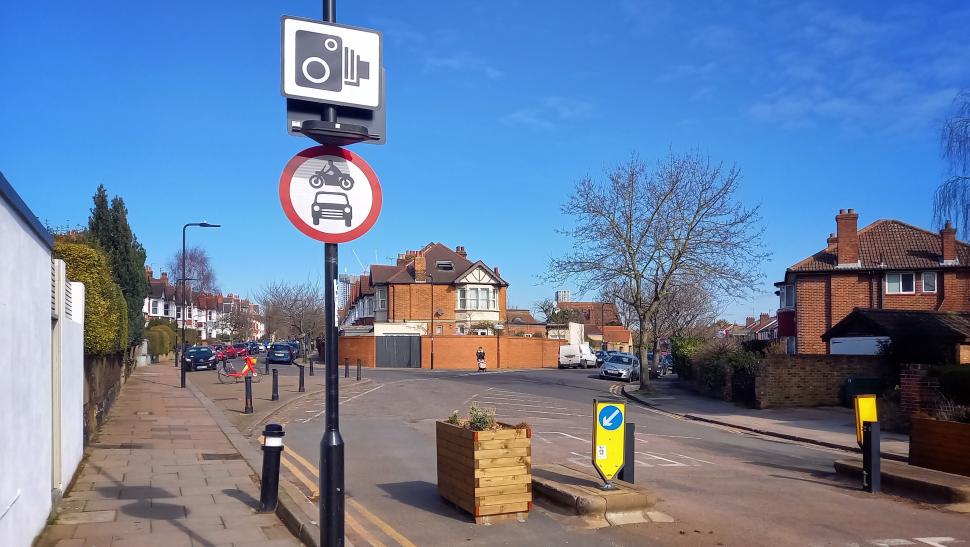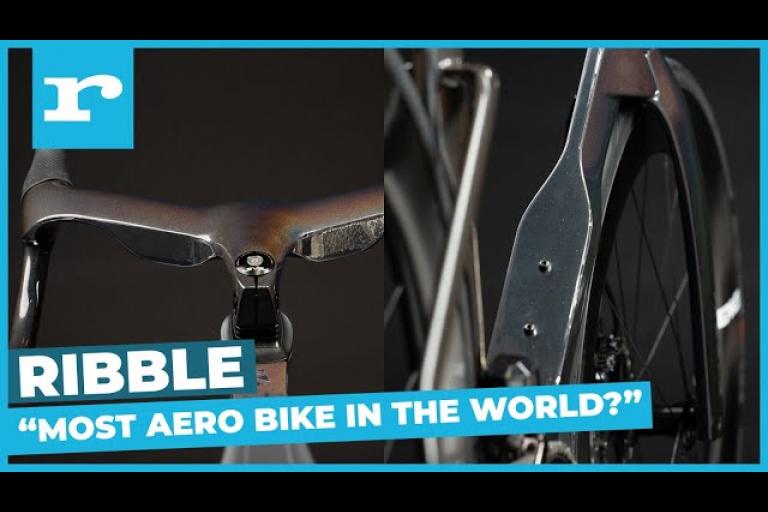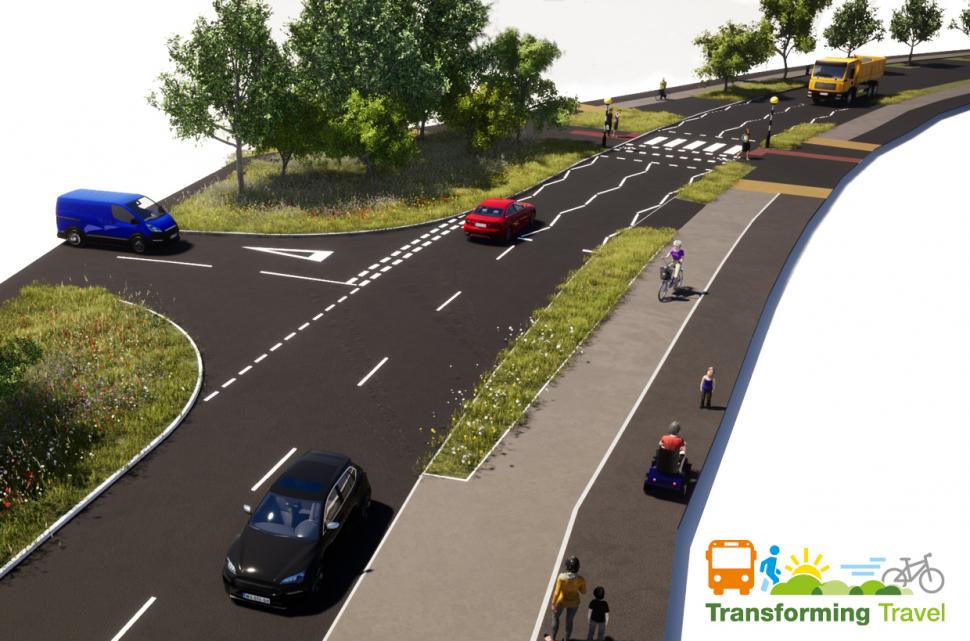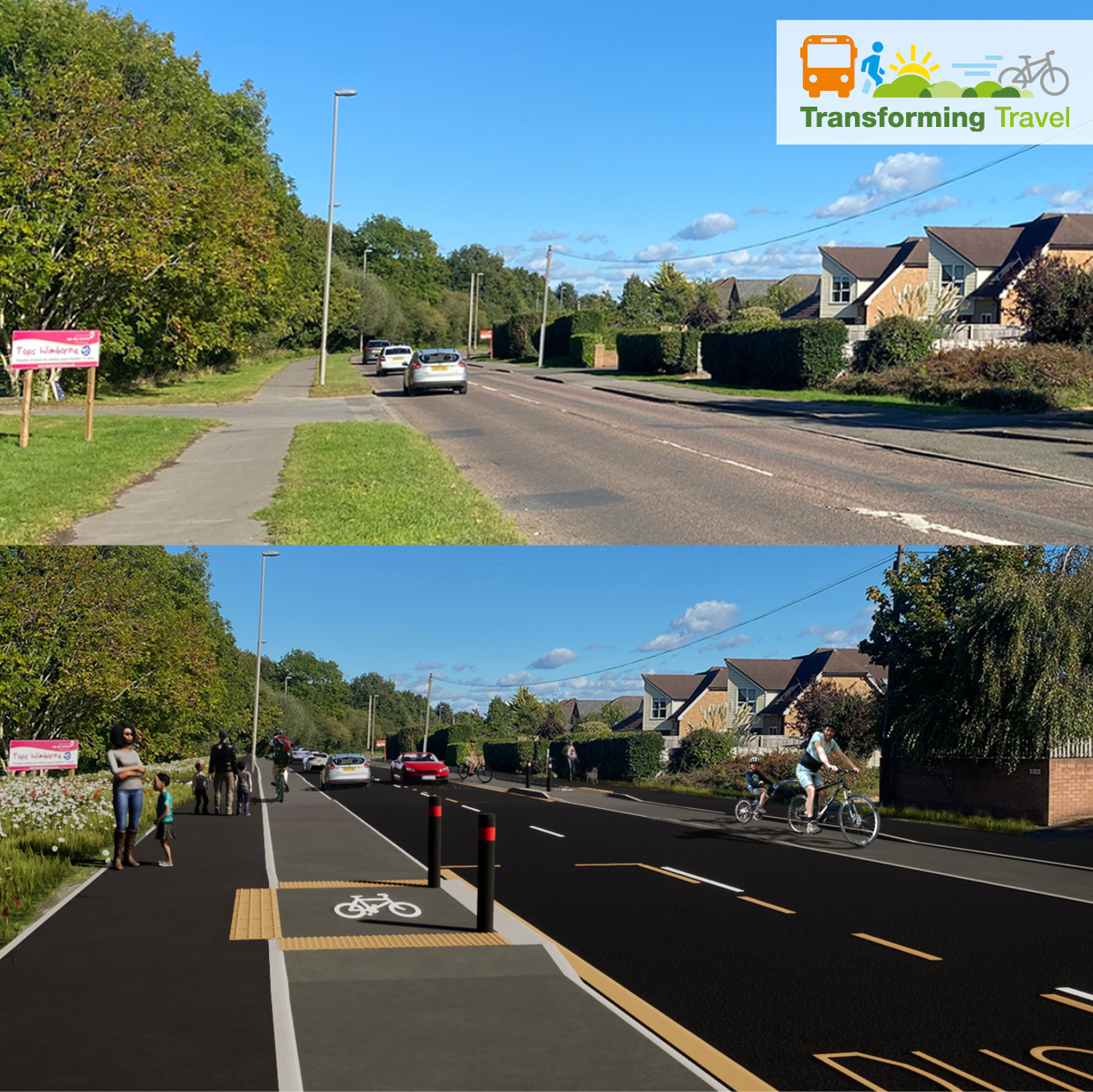- News
- Reviews
- Bikes
- Accessories
- Accessories - misc
- Computer mounts
- Bags
- Bar ends
- Bike bags & cases
- Bottle cages
- Bottles
- Cameras
- Car racks
- Child seats
- Computers
- Glasses
- GPS units
- Helmets
- Lights - front
- Lights - rear
- Lights - sets
- Locks
- Mirrors
- Mudguards
- Racks
- Pumps & CO2 inflators
- Puncture kits
- Reflectives
- Smart watches
- Stands and racks
- Trailers
- Clothing
- Components
- Bar tape & grips
- Bottom brackets
- Brake & gear cables
- Brake & STI levers
- Brake pads & spares
- Brakes
- Cassettes & freewheels
- Chains
- Chainsets & chainrings
- Derailleurs - front
- Derailleurs - rear
- Forks
- Gear levers & shifters
- Groupsets
- Handlebars & extensions
- Headsets
- Hubs
- Inner tubes
- Pedals
- Quick releases & skewers
- Saddles
- Seatposts
- Stems
- Wheels
- Tyres
- Health, fitness and nutrition
- Tools and workshop
- Miscellaneous
- Tubeless valves
- Buyers Guides
- Features
- Forum
- Recommends
- Podcast
news
Ealing to scrap almost all LTNs - 'consultation' with handful of responses used as 'referendum'; Council under fire for 'Britain's biggest bike lane'; New Masters hour record; Bike on roof shocker; Search for thief; Bike fairy + more on the live blog
SUMMARY
 ANPR protected LTN in LB Ealing
ANPR protected LTN in LB Ealing19 August 2021, 14:50
Ealing to scrap almost all LTNs - 'consultation' with handful of responses used as 'referendum'
THREAD: Ealing council has released the results of its consultation, a sort of hyper-local referendum, on Low Traffic Neighbourhoods.
Whether you support them or not, I think we can all agree this process is the blueprint for how NOT to make decisions on transport policy. pic.twitter.com/cWTZKuGUyE
— Adam Tranter (@adamtranter) August 17, 2021
Ealing Council's website bares the statement 'Ealing Council fully committed to active travel schemes including LTNs where supported by residents'. The council sent out a consultation on the future of the area's LTNs and received a whopping 22,000 responses out of 340,000 (6.47 per cent).
Areas which expressed support for LTNs will keep their schemes. Areas that didn't will, after a short deferral period, have their LTNs removed. 70 per cent of Adrienne Avenue residents backed the schemes, 27 per cent opposed, so the referendum-style consultation means that one stays along with Deans Road and Montague Avenue. However, the further seven schemes are not going to be continued.
Adam Tranter, Bicycle Mayor for Coventry, explained in a Twitter thread (which is well worth five minutes of your time) why "whether you support them or not, I think we can all agree this process is the blueprint for how NOT to make decisions on transport policy."
In the instance of Adrienne Ave (LTN 48), 70% of residents supported it. The total sample size for the group which ultimately "made the decision" is 33 people.
It's fair to guess that a coordinated response of anti-LTN groups outside Ealing dominated the "non-resident" responses
— Adam Tranter (@adamtranter) August 17, 2021
He concluded: "In almost all cases, boundary road residents responded with a resounding 'no' to Ealing LTNs. This is because of the successful narrative that LTNs cause congestion to boundary roads and worsen air quality of main road residents. The trouble is: the data doesn't back that up.
"This thread isn't even really about whether you support LTNs or not. It's about the importance of political leaders making decisions in keeping with the huge crises that are looming - climate change being the main one. You don't make those decisions through referenda.
"We should absolutely get feedback from local residents in LTNs across the country - their design means they can be tweaked and improved. But we can't ignore data and back conjecture instead."
Ealing Council tried to sweeten the news with the announcement of five new School Streets, as well as emphasising that it is now a 20mph borough. Leader of the council, Peter Mason explained they promised to listen to local people's views and act on the results.
"We will continue to explore future LTN schemes, but we will only be implementing where we are satisfied that the data and public support them. Some of the fears around increasing traffic times and poorer air quality that some people have expressed concerns about have not come true, but we cannot definitively say they have got better because of our LTNs either," he said.
19 August 2021, 14:24
Rider dies at Leadville Train 100 mountain bike race
A rider died in a crash at the Leadville Trail 100 mountain bike race on Saturday. Details of the incident have not been released but several competitors confirmed rumours the rider crashed on a descent.
"The entire Leadville family is deeply saddened by the passing of an athlete,” Jordan Titus, a spokesman for race owner Life Time said. "This athlete embodied the spirit of Leadville and our thoughts and sympathies are with their loved ones at this difficult time."
The Lake County Sheriff's Office declined to comment to the Durango Herald and a spokesperson said she was unable to comment "out of respect for the participant." A moment of silence for the man was held during Sunday's awards ceremony.
19 August 2021, 13:51
Bike on the roof vs height limit: There's only ever one winner
Morning evening one… first world problems know… but height barriers and roof racks can catch you out if you are rushing 😥 pic.twitter.com/zXPT4sekfI
— wekin (@keithcolville) August 19, 2021
19 August 2021, 13:04
New Masters hour record
Piotr Klin of Coventry Road Club reclaimed the UCI World Masters Hour record this week, setting a distance of 50.094km to take the 30-34 age group title. The multiple-time Polish Masters National Time Trial champion improved on his previous best of 49.649km at velodrome Velodromo Bicentenario in Aguascalientes. Klin postponed his effort last year due to the pandemic, but used the time to fine tune his performance and kit.
Riding a BMC Track Machine TR01 with Walker Brothers wheels and a new refined front end set-up supported by his employer, Warwick Manufacturing Group from the University of Warwick, Klin beat his previous best at the famous Mexican velodrome which sits at 1,887m above sea level.
Klin undertook his effort at the same velodrome in the same week as American Ashton Lambie who yesterday stunned the world by becoming the first man to ride a 4km team pursuit in under four minutes.
19 August 2021, 12:46
Police search for suspected bike thief who collided with and seriously injured pensioner
Essex Police have renewed their appeal for information after an elderly woman in her 80s was hit by a suspected bike thief as he made his getaway on a bike stolen from outside Lidl. The incident happened at around 2.50pm on July 22 at the Greyhound Retail Park in Southend and the woman was rushed to hospital in a life-threatening condition. She is still recovering from her injuries.
The suspected thief fled the scene in the direction of Sutton Road. Essex Police have asked that anyone with information should call the Serious Collision Investigation Unit via 101 quoting incident 840 of 22 July. Information can also be submitted online at Essex Police's website.
19 August 2021, 12:38
LightSKIN unveils “world's smallest StVZO bicycle front light"
Korean company LightSKIN has revealed the Ultra-Mini-Light (U2) which it says is the smallest light to meet Germany’s StVZO regulations, measuring 28mm wide and weighing 25g. The light is powered by a dynamo hub.
StVZO – Straßenverkehrs-Zulassungs-Ordnung – are road traffic licensing regulations developed by the German government. In order to comply, lights must provide a minimum of 10 lux (10 lumens / m2) in the area 10m in front of the bike, and the beam pattern must be levelled off to avoid dazzling oncoming traffic. In other words, the shape of the beam on the road will be rectangular with a horizontal cutoff point. Of course, there’s no requirement for lights sold outside of Germany to conform to these standards.
“Unlike many competitors, the LightSKIN U2 is extremely functional thanks to the wide range of different mounting options,” says LightSKIN. “Due to its flexibility of being mounted both above and below the bracket, the U2 can be installed anywhere, such as fork crown, stem, handlebar and mudguards. This is also made possible by the small dimensions and featherlight weight.”
LightSKIN gives the U2’s dimensions as 28mm wide, 19mm high, and 34.7mm long. The company says that the aluminium housing also offers excellent cooling characteristics because of the small distance between the LEDs and the bracket, allowing heat to be optimally transported outwards.
The LightSKIN U2 offers 150 lumens of light and is priced €99.
19 August 2021, 10:56
"It’s almost like they should slow down and drive more carefully": Get the tiny violins out for all the Dorset drivers moaning to the Mail Online
Great to see the “secret power of a bike Lane” causing vehicles to swerve, and lorries to clip mirrors. There are more powers in a bike Lane than we realised …. Build more to increase more secret powers
— ⚫️Davinaswims (@davinaswims) August 19, 2021
Not much sympathy for drivers complaining about the width of Wimborne's cycle lane...here's the best of the reaction...
It’s almost like they should slow down and drive more carefully… oh wait if they did that you wouldn’t need a segregated bike lane
— Martin Smith (@Martintastic) August 19, 2021
AKA forcing drivers to act sensibly while on the road in charge of a vehicle. No wonder they don’t like it.
— vic bates (@victorbates) August 19, 2021
"There's more room now for cyclists than there is for drivers"
This is what it is all about.
Just petty childlike jealousy and general annoyance that drivers aren't the top of the tree with most space any more. https://t.co/JFcfUzt0wa— Real Gaz on a proper bike #fbpe (@gazza_d) August 19, 2021
19 August 2021, 10:39
Liam talks to Andy Smallwood - CEO of Ribble - about the brand's new aero bike built with the brief of being “the fastest aero road bike in the real world”
Ribble's new aero machine is the big story of the morning. Liam sat down with Andy Smallwood, the brand's CEO, to talk through the new bike. For all the juicy details about the bike built with “the fastest aero road bike in the real world” brief, check out the full story here...
19 August 2021, 10:25
Bike fairy leaving charms on bicycles in Vancouver in tribute to a friend
An anonymous bike fairy has been leaving charms on bicycles in Vancouver. Vancouver is Awesome shared the story after spotting the Bike Fairy Instagram page where the mysterious resident leaves miniature models on lucky rider's bikes.
"Ultimately, the goal is to kind of share the love for cycling and bring joy to people who own a bike," the Bike Fairy told Vancouver is Awesome. The idea was inspired by a friend who passed away in 2017.
"He was the original Bike Fairy," the current Bike Fairy continued. "He sadly passed away on his bike in 2017. The model is kind of based on him in a lot of ways. The spirit of the idea is originally from him."
The Bike Fairy hits the streets, bike paths and coffee shop bike racks of the Canadian city to look for bikes worthy of the charms. However, it doesn't always go to plan...
"I have got caught once when I was visiting in Portland. We were going shopping there and checking out the cool doughnut shops and the breweries. It was a rainy day and I spotted a nice bike I wanted to tag and a guy came running out asking what the hell I was doing to his bike. People don't like you touching their bike. In a city like Vancouver, where having your bike stolen is almost a right of passage, people definitely keep one eye on what they're doing and one on their bike."
In the genre of cyclists having 'mysterious' items left on their bikes...remember the live blog story that blew up online last November? 'Too much protection: Cyclist makes a grim discovery'. Definitely not the work of a Bike Fairy...
19 August 2021, 10:20
19 August 2021, 09:41
How much does a 22-year-old double Tour de France winner make? €6 million, according to Italian media reports
Tadej Pogačar is reportedly earning €6 million (£5.1m) per year at UAE Team Emirates, according to Italian newspaper La Gazzetta dello Sport. The Slovenian doesn't even turn 23 until next month but has already won two Tour de France titles, a Monument and an Olympic medal. Last month he signed a new improved six-year contract to keep him with his current employers until the end of 2027.
At the rate of €6 million a year, he will have raked in at least €36 million (£30.7m) by the earliest possible date he could leave the team. An article in L'Equipe last year suggested that Chris Froome €4.5 million (£3.8m) and Peter Sagan €5 million (£4.3m) were the peloton's highest earners, a title Pogačar has now eclipsed.
Oh to be a generational talent with the potential to dominate a sport for the next decade...
19 August 2021, 09:37
Fully segregated cycle route: Paddington to Wapping
I cycled from Paddington to Wapping today at 5pm, almost entirely on segregated cycle lanes. It took me 45 minutes, and I passed 383 bikes (incl. 6 children), four escooters and one electric skateboard (not including anyone going in my direction). Bravo @willnorman @MayorofLondon pic.twitter.com/GRvCcgiQzv
— Olivia Baskerville (@highmedieval) August 18, 2021
19 August 2021, 08:59
19 August 2021, 08:35
What (some) locals told the press (Mail Online)
Caused to 'drive properly' and 'overtake only if safe to do so' oh the horror
— Andy Barclay (@drewsparkley) August 19, 2021
The Mail Online took the news of the 11ft-wide Dorset bike lane well...here's what some locals told the news outlet...
A 38-year-old woman, who works at garage on the B3073, said: "There's more room now for cyclists than there is for drivers. We have a Jewsons building merchants on the road that lorries use all the time. Just the other day we had two articulated lorries smashed their mirrors trying to pass each other on opposite sides of the road. Other lorries are having to pull into the cycle lane to pass safely. It's an absolute shambles. There is the same amount of traffic going in and out of the town, but now half the amount of space. Cyclists who are still using the road are getting abuse from drivers - even those on the opposite side of the road."
A 62-year-old man said his garden was seized by the council 60 years ago to make the road safer. Now he says he is perplexed as to why they've narrowed it again. He said: "People here are not very happy with the over exaggeration of the cycle path. We were never informed and no letters came through our letter box about it. I noticed one morning in January that they were building it. A neighbourhood consultation asked how the area could be improved and whether cycle routes could be better, which many people agreed to without understanding the details of what would be built.
"The whole thing is just a big gamble. It is the main road into Wimborne and the width could cause real issues for emergency vehicles because the layby has been removed. Around 50 per cent of the vehicles on the road are trade and heavy goods vehicles. It's chaos. In the past you could overtake a bike whereas now you can't safely do this."
Mail Online did not include any positive thoughts from locals about the lane, just an AA spokesperson who said the lane "actively encourages" drivers to look out for cyclists and keep a safe distance.
“Caused” and “forces” doing some heavy lifting there.
— 리암 (@LiamNB) August 19, 2021
19 August 2021, 07:50
Council under fire for 'Britain's biggest bike lane': 11 ft-wide Dorset cycle lane is too much for some
We're getting in touch with Dorset Council and BCP Council (Bournemouth, Christchurch and Poole) to find out some more details about this one for you...the headline in The Telegraph this morning is 'Britain’s biggest bike lane leaves drivers with less room than cyclists', Mail Online went for 'Britain's BIGGEST bike lane: 'Shambolic' 11ft 2in-wide cycle path is larger than 9ft 5in road lane it runs next to - and forces drivers to pull over to avoid a CRASH'.
The cycle lane on Wimborne Road West has been built using a portion of the £79 million Dorset Council and BCP Council were awarded by the Transforming Cities Fund in March 2020. As part of the county's active travel upgrades, this 2.3km new cycle and walking route on Leigh Road and Wimbourne Road West has been built. The speed limit has also been dropped from 40mph to 30 mph. It isn't clear exactly where on the 2.3km stretch the artist's impression above is, but it gives you an idea of what the lane might look like when complete...
However, since certain publications got hold of the pictures of the new cycle lane looks currently, the council has found itself under fire. One local told the Mail Online the project is a "shambles". In the same story it is said the lane is 11ft 2in wide, compared to the 9ft 5in lanes running parallel. Any mathematicians amongst you can work out that means the road is 18ft 10in wide, so is still significantly wider than the segregated cycle route...some residents claim the narrowness of the road has caused lorries clipping wing mirrors and road rage between motorists...
How it looked before...
How it looks now (plus Mail Online's headline)...
https://t.co/Vyt7bw7Ara Crazy cycle lane! #Wimborne #Dorset
— Cath Parslow 💙 (@73cath) August 18, 2021
We'll bring you more from Dorset Council and BCP Council when we have it.
Dan is the road.cc news editor and joined in 2020 having previously written about nearly every other sport under the sun for the Express, and the weird and wonderful world of non-league football for The Non-League Paper. Dan has been at road.cc for four years and mainly writes news and tech articles as well as the occasional feature. He has hopefully kept you entertained on the live blog too.
Never fast enough to take things on the bike too seriously, when he's not working you'll find him exploring the south of England by two wheels at a leisurely weekend pace, or enjoying his favourite Scottish roads when visiting family. Sometimes he'll even load up the bags and ride up the whole way, he's a bit strange like that.
Add new comment
90 comments

Hirsute
|
3 years ago
3 likes
Unsurprisingly, lies from the Daily Hate on the cycle lane
Articles claim: The cycle lane at this point is wider than the vehicle lanes
This is incorrect: The total width of the two-way cycle lane on Leigh Road is 3.5m (11ft 4in) and the total width on the two-way road is 6.5m (21ft 3in).
Articles claim: The cycle lane and road is not built to Highways standards
This is incorrect: Both the cycle lane and road conform and in fact exceed Highways standards.
The total width of the two-way cycle lane on Wimborne Road West is 3.5m (11ft 4in) and the total road width is 6.5m (21ft 3in). There is nothing unusual about these widths (there are many similar in Britain) and they conform to Highway standards.
https://news.dorsetcouncil.gov.uk/2021/08/20/statement-on-recent-press-a...
If you are bored, here are the local comments
https://www.bournemouthecho.co.uk/news/19525778.confusion-cycle-lane-wid...

Muddy Ford
|
3 years ago
6 likes
The biggest bike lane, turns out to be quite ordinary. And the road that is too narrow is actually wider than the minimum specification (i.e. over 21ft). The whole story is complete fabricated bollocks by the mail etc. to incite hatred towards cyclists.
https://news.dorsetcouncil.gov.uk/2021/08/20/statement-on-recent-press-a...

wycombewheeler
|
3 years ago
5 likes

That's a bad result for LTNs, but then you can't count opinions from people who didn't respond. Doing it over the phone might have been more effective.
But you can count opinions from people who might not live in the area or indeed the country, as well as those from people who responded multiple times and were counted as a separate person each time; both of these were possible in the Ealing consultation. Maybe 7,000 votes were genuine locals in favour and 15,000 out-of-towners voting against, or 5,000 people voting three times each (lest I be accused of being a tinfoil hat merchant, I've seen LTDA and UTAG supporters on Twitter encouraging precisely this). We just can't tell as the survey is an utter farce and a ridiculous basis for making policy.

That's a bad result for LTNs, but then you can't count opinions from people who didn't respond. Doing it over the phone might have been more effective.
But you can count opinions from people who might not live in the area or indeed the country, as well as those from people who responded multiple times and were counted as a separate person each time; both of these were possible in the Ealing consultation. Maybe 7,000 votes were genuine locals in favour and 15,000 out-of-towners voting against, or 5,000 people voting three times each (lest I be accused of being a tinfoil hat merchant, I've seen LTDA and UTAG supporters on Twitter encouraging precisely this). We just can't tell as the survey is an utter farce and a ridiculous basis for making policy.
They've reported the views of non residents, but the decision has been made on the masis of residents views only anyway.

That's a bad result for LTNs, but then you can't count opinions from people who didn't respond. Doing it over the phone might have been more effective.
But you can count opinions from people who might not live in the area or indeed the country, as well as those from people who responded multiple times and were counted as a separate person each time; both of these were possible in the Ealing consultation. Maybe 7,000 votes were genuine locals in favour and 15,000 out-of-towners voting against, or 5,000 people voting three times each (lest I be accused of being a tinfoil hat merchant, I've seen LTDA and UTAG supporters on Twitter encouraging precisely this). We just can't tell as the survey is an utter farce and a ridiculous basis for making policy.
They've reported the views of non residents, but the decision has been made on the masis of residents views only anyway.
As rct also states - Each side can say the other doesn't come from the area, and shouldn't get a say in the matter. These "whoever complains the loudest" consultations need to be replaced with a better system.

kingleo
|
3 years ago
12 likes
Judging by the 4 lane gridlock traffic jams I see on the M25 every day in the Egham /Chertsey area, motorways must cause traffic jams and pollution, and there are no cycle lanes or cyclists there - so who do the motorists blame for the traffic jams and pollution on motorways? If motorways cause traffic jams and pollution should they be removed.

Judging by the 4 lane gridlock traffic jams I see on the M25 every day in the Egham /Chertsey area, motorways must cause traffic jams and pollution, and there are no cycle lanes or cyclists there - so who do the motorists blame for the traffic jams and pollution on motorways? If motorways cause traffic jams and pollution should they be removed.
Surely there should be an Ealing style referendum on motorways?



I was warned by a neighbour, so not happened to me apart from when I reversed into a parking spot under a tree ! (no damage done)
I did get a funny look from a bloke another time when I asked him to move his van so I could get by. I then pointed to the 2 kayaks on the roof which were not going to fit under the tree !
A friend of mine did this a couple of decades ago. The two destroyed bikes were less than two months old! Fortunately, he had purchased them with a credit card that offered purchase protection insurance and covered 100% replacement.
I don't think he's done it again.
Not me, I drive a van for a reason!
I've seen a very lucky example though, a guy pulled into a parking garage and forgot his brand new CAAD 10 on the roof racks. The saddle wedged under the ceiling, the roof racks bowed until they touched the car's roof but nothing broke.

I have been toying with the idea of one of those van-derived MPVs (à la Citroën Berlingo) with the idea that I could shove two bikes directly in the back (rear seats folded/removed as applicable). I don't want to drive an actual van van, but something like a Berlingo or Ford Tourneo might be OK. But I've never actually tried, do bikes even fit in the back? Does anyone have any experience?


Hirsute
|
3 years ago
8 likes
I agree with the comments that the road is narrow but looking at the link to the scheme that brooksby gave, this is deliberate.
"The B3073 Leigh Road was previously part of the strategic east/west route across Dorset before the A31 was built. This project aims to create more of a neighbourhood community road rather than the feel of a trunk road and will help residents to enjoy the area more on foot or other means such as bike, scooters, mobility scooters and wheelchairs."
Drivers should be using the main roads instead.
I suspect having seen a few videos from user garysbikechannel of the huge amount of traffic around that area, it is one way of reducing demand for roadspace and parking.
Jenova20
|
3 years ago
16 likes
Some of the comments on that Mail article hysteria are hilarious:
- Cyclists should be forced to pay the same vehicle excise duty the car drivers have to pay! That would show them.
- If cyclist want their own lanes they should pay tax get insurance and have number plate fixed, WHY should motorists pay for cycle lanes
- It's about time they started paying road tax.
- And another one who thinks car tax pays for the roads. Is every Mail reader an idiot like this one?


- Is every Mail reader an idiot like this one?
Next time someone asks me what a rhetorical question is...
They're catering to their readership: apparently hot headed petrol heads - If that changes, then they'll have to change their stance on cycling, but unfortunately "the war on motorists" is a profitable angle for them.

Cyclists should be forced to pay the same vehicle excise duty the car drivers have to pay! That would show them.
Anyone told him we do pay the same as car drivers for this one. No pollution, no payment.
It was one of the replies, along with mentioning electric cars...

Muddy Ford
|
3 years ago
17 likes
The Wimborne bypass A31 runs parallel with this road, so this B road should be used for local traffic only but was probably used by a lot of drivers avoiding a snarled up bypass caused by millions of caravanners heading to Devon and Cornwall. When it was a 40mph limit most drivers were closer to 50mph because it was very wide and 40mph feels too slow (and being a longer route than the bypass they had to floor it in order to make that marginal gain). It's funny that drivers are now complaining about them getting close passed by oncoming traffic and having to slow down. It is now safer for pedestrians and cyclists, and I expect quieter traffic noise for the residents living along it.

The truth is out there...(and certainly won't be found in the Mail)... https://news.dorsetcouncil.gov.uk/2021/08/20/statement-on-recent-press-a...

Thanks for that link. Brilliant. Also :
From the article : "It is stated in the highway code that motorists on any road should not attempt to overtake cyclists if there is oncoming traffic in the opposite lane and there is insufficient room to pass the cyclist safely. This is particularly important when cycling through stretches of roadworks. Drivers should wait until it is safe to pass, giving the cyclist plenty of room as they pass. Attempting to crowd cyclists off the road, so as to squeeze between them and an oncoming vehicle is dangerous driving and has been the cause of cyclist injuries and fatalities in the past."
I think someone needs to make the police aware of the last sentence as they don't even seem to deem this behaviour careless driving let alone dangerous.

brooksby
|
3 years ago
6 likes
One of the comments about that cycle lane is from a woman who works in the garage.
The website about the project is at https://www.dorsetcouncil.gov.uk/roads-highways-maintenance/highway-impr...
There's another artists impression on it which shows (coincidentally!) the road by the garage.
It looks like the (maybe) four feet of roadway that's been reallocated from motor traffic to shared use was hatched off dead space anyway...


Pages
Latest Comments
- wtjs 7 hours 43 min ago
The excellent Garmin software and firmware is what you're paying for when you buy expensive Garmin gadgets. I'm a great fan and they're not going...
- David9694 8 hours 55 min ago
We constantly hear how cyclists film women and children in cars, whereas cars get used to to attempt to abduct women children off the street ...
- David9694 9 hours 5 min ago
Three taken to hospital after car overturns in Tivoli Road, Margate https://www.kentonline.co.uk/thanet/news/three-in-hospital-after-car-sma...
- David9694 9 hours 14 min ago
Emergency services called to incident in Verwood...
- chrisonabike 9 hours 37 min ago
Was in need of exercise so popped over for a look this evening. Short: it's a bodge - bollards would fix that *. Or rather (safer for all) a...
- chrisonabike 9 hours 56 min ago
... and of course "what does good look like" is not hard to experience - just over 100 miles away......
- Rendel Harris 10 hours 32 min ago
Actually any person, victim or even just a member of the public with no connection to the offence, can ask the Attorney Genertal to review a case...
- Steve K 11 hours 9 min ago
When I was cycling to every Crystal Palace match for a season back in 2016/17, my LBS gave my bike Palace coloured outers.
- Rendel Harris 11 hours 46 min ago
So let water and sweat in from the outside! I'm all for economic solutions and £30 for this case is just daft but not sure your alternative is a...










